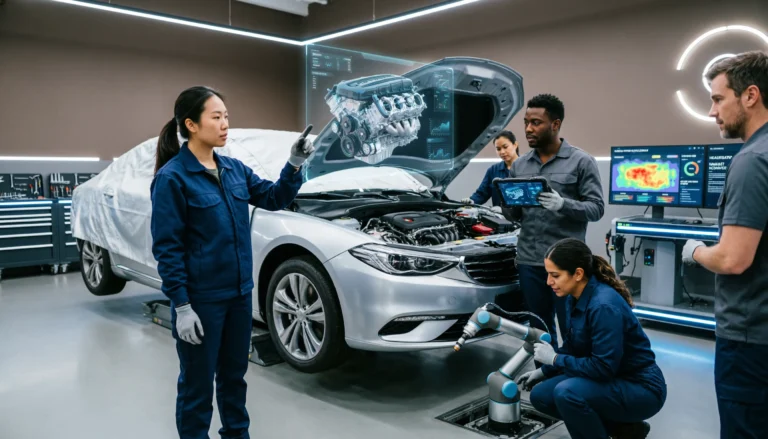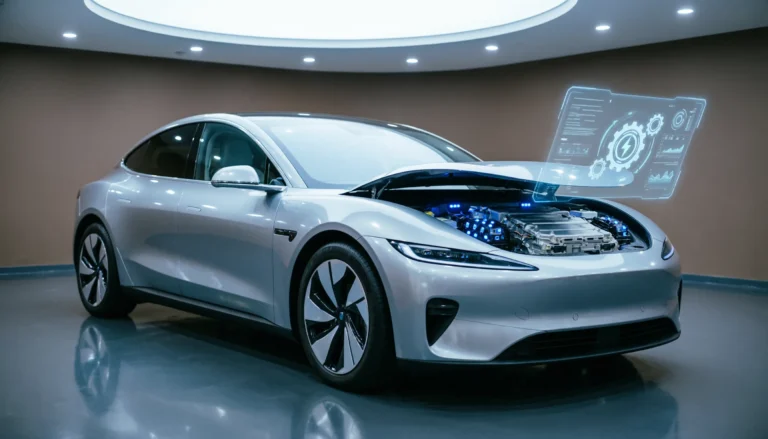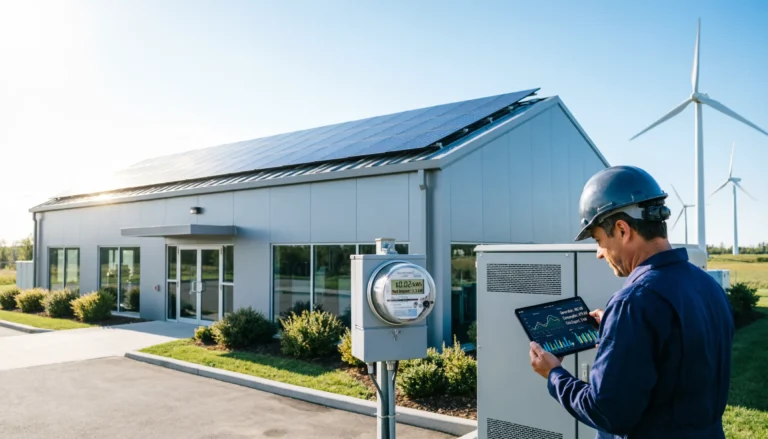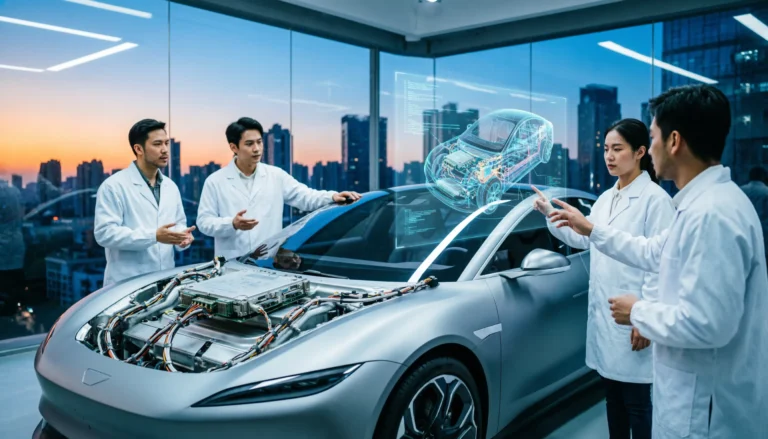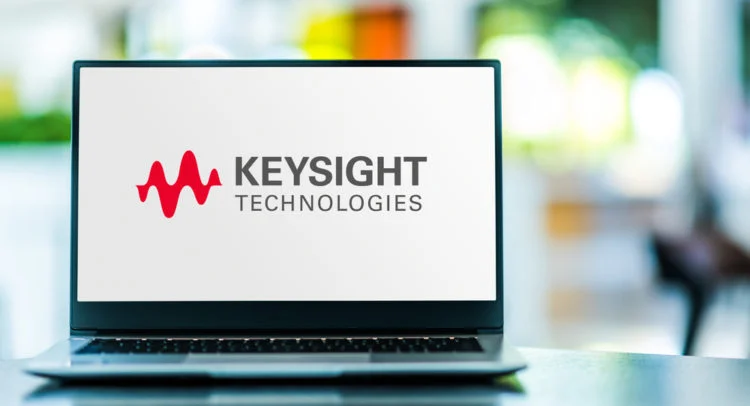
Keysight Expands End-of-Line Test Portfolio to Accelerate the Future of Electric Mobility
Keysight Technologies, Inc. (NYSE: KEYS), a global leader in test and measurement solutions, has taken another significant step in advancing electric vehicle manufacturing with the expansion of its end-of-line (EOL) test portfolio. The company has introduced two new solutions designed to streamline production, improve quality, and enable long-term scalability for automakers and manufacturers of electric vehicle supply equipment (EVSE):
- EV2020B EV Manufacturing Functional Test Platform
- EV2020BE EV Manufacturing Functional Test Platform for EVSE
Together, these platforms provide a unified, future-ready testing ecosystem tailored to the fast-evolving electric mobility sector. They address longstanding industry pain points such as compatibility, integration complexity, and capital expenditure while helping manufacturers bring reliable electric mobility products to market more efficiently.
A Market Growing Faster Than Ever
The electric vehicle sector is undergoing exponential growth, driving urgent demand for more efficient and scalable testing and validation systems. According to recent analysis by the International Energy Agency (IEA), global electric car sales will surpass 20 million units by 2025, representing more than 25% of the global automotive market. By 2030, EVs are expected to account for over 40% of all car sales worldwide.
This rapid adoption is fueled by regulatory mandates, technological advances, declining battery costs, and consumer demand for cleaner transportation. However, scaling production and infrastructure introduces several core challenges for both automakers and EVSE developers. These include:
- Fragmented system architectures: Manufacturers work across diverse platforms with varying hardware and software configurations, which makes design, testing, and optimization more complex and time-consuming.
- Inconsistent charging standards: Variations in charging protocols, power conversion formats, and communication interfaces create interoperability hurdles that increase development and integration costs.
- Unclear future trends in charging technology: Rapid advancements in charging speed, bidirectional power flow, grid integration, and vehicle-to-everything (V2X) applications make it difficult to invest confidently in equipment that will stand the test of time.
- High testing costs: Traditional test setups require multiple systems, specialized equipment modifications, and custom engineering, all of which strain budgets and slow innovation cycles.
Keysight’s expanded EOL test portfolio directly targets these challenges by providing manufacturers with a unified and scalable approach to production testing. Rather than building fragmented or proprietary solutions for each product category, automakers and EVSE providers can now rely on a flexible ecosystem that adapts to shifting regulatory, technical, and performance requirements.
Scalable, Standardized Solutions for a Rapidly Changing Industry
The new platforms—EV2020B and EV2020BE—offer manufacturers a consolidated, modular strategy to validate performance across major electrification domains, including onboard and offboard charging systems, DC-DC power conversion, and EVSE compatibility.
By standardizing testing across these subsystems, Keysight enables faster development cycles, lower capital expenditures, and a smoother bridge between research and development (R&D) and end-of-line production. The result is greater confidence in system reliability and interoperability across global markets.
For end users—whether drivers, fleet operators, or charging network providers—this translates to:
- Faster deployment of vehicles and charging infrastructure
- Consistent performance across platforms and geographies
- Reduced downtime and higher energy efficiency
- Improved compatibility between vehicles and charging environments
EV2020B: A Flexible Production Testing Platform for EV Systems
The EV2020B EV Manufacturing Functional Test Platform is designed to meet the needs of EV manufacturers working with multiple types of power conversion and charging technologies.
Key capabilities include:
- Adaptability for multiple test scenarios: Whether validating a DC-DC converter, an on-board charger, or a hybrid configuration, the EV2020B can be customized to address the exact testing requirements of each component or subsystem.
- Single unified platform: By centralizing functionality in one solution, manufacturers eliminate the need for multiple standalone systems, reducing complexity and maintenance overhead.
- Comprehensive toolsets: The platform supports performance validation, compliance testing, data logging, and automated workflows to enhance throughput and consistency.
- Scalability: As manufacturers expand production lines or introduce next-generation EV platforms, the EV2020B can be scaled and reconfigured without requiring major capital reinvestment.
This flexibility is especially critical for automakers serving global markets, where regional regulations and charging standards may differ. The EV2020B accommodates those variables without forcing significant changes to the testing environment.
EV2020BE: Unified, Future-Proof Testing for EVSE
The EV2020BE EV Manufacturing Functional Test Platform for EVSE is engineered specifically for manufacturers of charging stations and EV supply equipment. Its design reflects the urgent need for unified and future-ready testing approaches in a landscape marked by fast-evolving standards.
Highlights include:
- Support for both AC and DC charging standards: Manufacturers no longer need to invest in separate testing systems for different voltage or power delivery formats, reducing cost and operational complexity.
- Modular charging interface: The platform features swappable modules that allow rapid reconfiguration, minimizing downtime and enabling quicker adaptation to new charging technologies.
- Dynamic power sharing for dual-gun EVSE simulation: This feature enables the realistic replication of real-world peak load scenarios, a critical factor in validating reliability, performance, and load-balancing behavior in multi-port charging stations.
- Reduced time-to-market: By simplifying the setup and execution of complex charging tests, developers can accelerate certification processes and deployment timelines.
As EV charging infrastructure becomes more integrated with smart grids, fleet depots, and commercial hubs, the need for platforms that can simulate advanced usage patterns and variable power conditions grows increasingly urgent. The EV2020BE is designed with those future needs in mind.
Bridging R&D and Manufacturing with a Unified Test Ecosystem
Thomas Goetzl, Vice President and General Manager for Keysight’s Automotive & Energy Solutions, emphasized the strategic importance of these new platforms. He said:
Electrification is reshaping the automotive landscape, and manufacturers need more than just tools—they need confidence. With our expanded end-of-line portfolio, we’re not just enabling functional testing, we’re delivering a unified ecosystem that bridges R&D and manufacturing. This empowers our customers to move faster, reduce risk, and stay ahead of evolving standards in a rapidly accelerating market.”
Goetzl’s statement reflects a broader industry shift: automotive and charging infrastructure companies are seeking integrated workflows that not only support current production demands but also anticipate future requirements. Keysight is responding by aligning test methodologies and hardware solutions across the entire product lifecycle—from initial prototype evaluation through mass manufacturing.
Benefits Across the Product Lifecycle
Keysight’s new platforms deliver several strategic benefits that help manufacturers remain competitive as EV adoption continues to surge:
1. Standardization Across Systems
By providing a unified approach to testing multiple components and interfaces, the platforms reduce engineering overhead and ensure compatibility across OEM and supplier ecosystems.
2. Lower Capital Expenditure (CAPEX)
Instead of purchasing separate or custom-built setups for each testing need, manufacturers can deploy modular solutions that scale as production increases or evolves.
3. Shortened Time-to-Market
With automated workflows, configurable toolsets, and integrated compliance validation, both platforms help reduce delays and streamline certification.
4. Improved Product Quality and Reliability
Comprehensive testing capabilities improve functional assurance while minimizing the risk of costly recalls, warranty claims, or field performance failures.
5. Future-Proofing Against Evolving Standards
As charging protocols, grid requirements, and communication standards continue to grow more advanced, the platforms offer the flexibility to adapt without requiring major hardware overhauls.
6. Enhanced Collaboration Between R&D and Manufacturing
By aligning test environments across product development stages, Keysight fosters continuity in data, methodologies, and performance targets. This reduces handoff friction and accelerates iteration.
A Unified Vision for the EV Manufacturing Future
Keysight’s expansion of its EOL test portfolio comes at a crucial time. The industry’s transition to electrification is no longer theoretical or exploratory—it is rapidly becoming the dominant path forward. Manufacturers are under pressure to scale operations responsibly, maintain quality, and ensure global compatibility. These new platforms help bridge the gap between innovation and implementation, giving companies the infrastructure they need to succeed.
By offering tools that streamline engineering processes, support multinational production standards, and integrate easily into existing workflows, Keysight is helping shape the future of electric mobility—not just at the prototyping stage but across full-scale production and deployment.
Additional Resources
Manufacturers and stakeholders interested in learning more about Keysight’s expanded testing platforms can explore the following resources:
- EV2020B EV Manufacturing Functional Test Platform
- EV2020BE EV Manufacturing Functional Test Platform for EVSE
These solutions represent a growing ecosystem of technologies designed to support the next generation of electric vehicles and charging infrastructure—ensuring reliability, performance, and innovation at every step.



